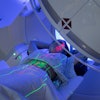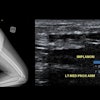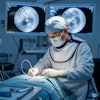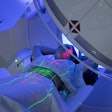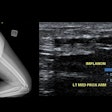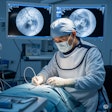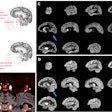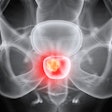
NEW YORK (Reuters Health), Sep 5 - The diagnosis of colorectal cancer will be delayed or missed in a substantial number of people who suffer from inflammatory bowel disease (IBD) if surveillance colonoscopy is conducted strictly according to official guidelines, investigators from the Netherlands warn in a report published this month.
IBD refers to a group of conditions, including Crohn's disease and ulcerative colitis, marked by chronic inflammation in the intestines, leading to symptoms like abdominal pain and diarrhea. People with IBD are known to be at increased risk of developing colon cancer.
Existing guidelines from the American Gastroenterological Association and the British Society for Gastroenterology recommend that colon cancer checks be started eight to 10 years after a diagnosis of Crohn's disease or extensive ulcerative colitis, or after 15 to 20 years for left-sided disease.
"These starting points, however, are not based on solid scientific evidence," Dr. F. P. Vleggaar and colleagues state in the September issue of the medical journal Gut.
To gauge the interval between the onset of IBD and diagnosis of colorectal cancer, the researchers analyzed records for 149 patients with a total of 166 cancers treated at Dutch university medical centers between 1990 and 2006.
Intervals between diagnosing IBD and colorectal cancer ranged from zero to 45 years.
The results showed that 22% of patients developed cancer before the "official" starting points of surveillance at eight to 15 years after they were diagnosed with IBD. The proportion grew to 28% if surveillance was commenced 10 or 20 years after IBD diagnosis.
"Surveillance guidelines largely based upon disease duration therefore seem to be insufficient and need to be expanded," Vleggaar, at University Medical Center Utrecht, and colleagues conclude.
They instead advocate surveillance based on stratification of patients according to risk factors, including disease severity, early age of IBD onset, and family history of colorectal cancer.
In a written commentary on the study, Dr. Charles N. Bernstein at the University of Manitoba in Winnipeg, Canada, agrees that in some cases, patient symptoms and history justify early screening, and he advises "gastroenterologists to consider a surveillance colonoscopy prior to eight years (after IBD diagnosis) if the opportunity presents itself."
Nevertheless, he points out, "broadly revising a starting point for initiating screening at less than 8 years might incur costs that far outweigh the benefit to the very few who might benefit."
Source: Gut, September 2008.
Last Updated: 2008-09-05 9:23:35 -0400 (Reuters Health)
Related Reading
Certain IBD patients at greater colorectal cancer risk, May 3, 2007
Copyright © 2008 Reuters Limited. All rights reserved. Republication or redistribution of Reuters content, including by framing or similar means, is expressly prohibited without the prior written consent of Reuters. Reuters shall not be liable for any errors or delays in the content, or for any actions taken in reliance thereon. Reuters and the Reuters sphere logo are registered trademarks and trademarks of the Reuters group of companies around the world.

